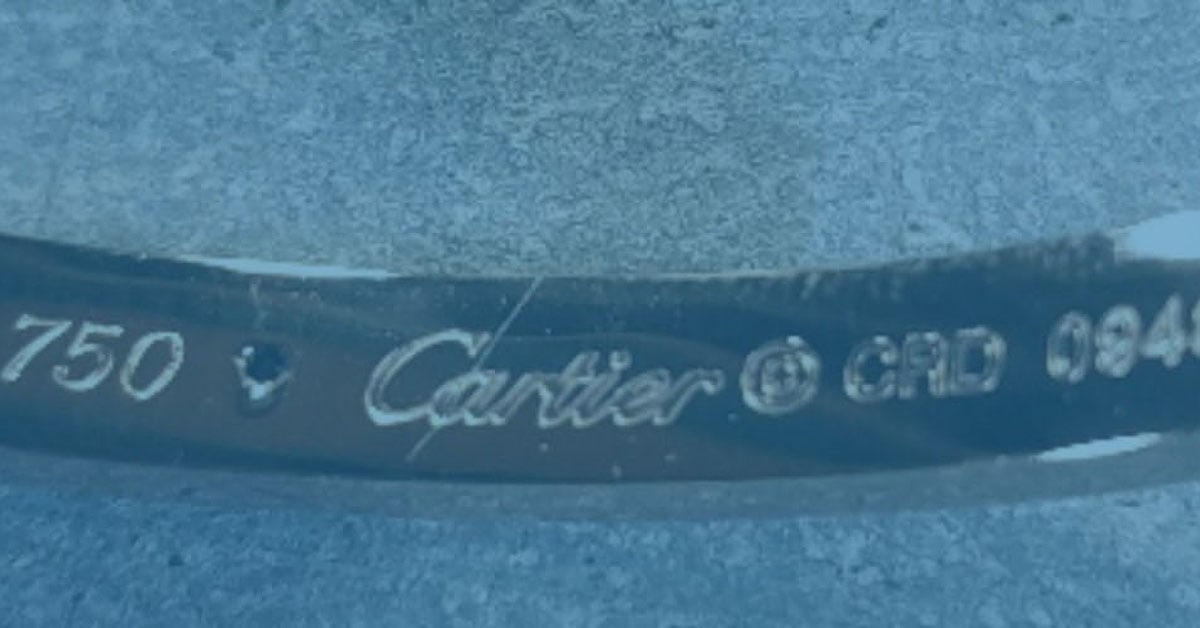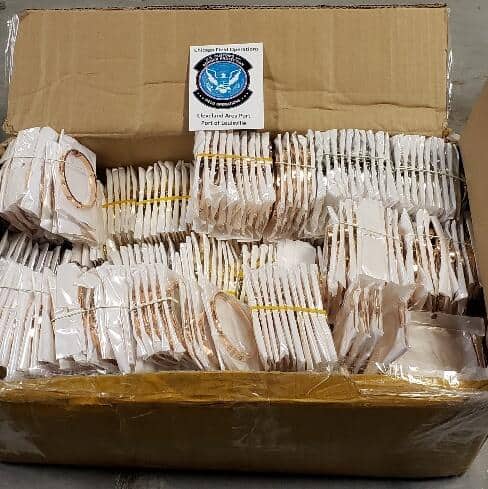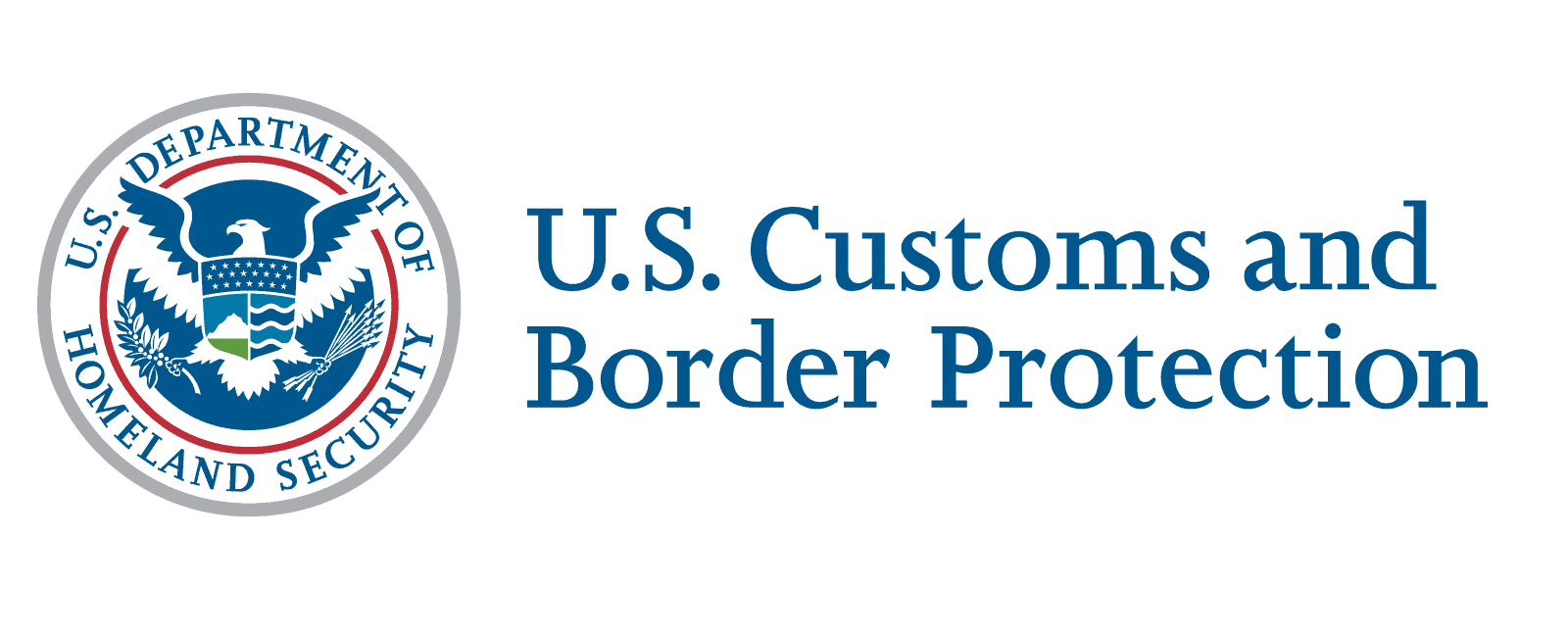
$8 Million in Fake Cartier Bracelets seized by CBP in Cincinnati & Louisville on the Same Day from the Same Shipper Heading to the Same Address
CINCINNATI— As E-Commerce is a growing segment of the U.S. economy, and consumer habits continue to change, U.S. Customs and Border Protection (CBP) officers continue to stop shipments that contain illicit goods that pose economic security risks. On January 14, in two separate locations, Cincinnati, Ohio, and Louisville, Kentucky, CBP officers halted shipments, arriving from Hong Kong, which contained more than 800 counterfeit designer bracelets.
CBP officers in Cincinnati detained two parcels heading to a residence in West Palm Beach, Florida. CBP officers inspected the parcels to determine the admissibility of its contents in accordance with CBP regulations.
Inside the first box officers found 267 Cartier bracelets, and the other box contained another 137 Cartier bracelets.
On the same night, officers in Louisville were inspecting different parcels to determine their admissibility. A shipment arriving from same location in Hong Kong and heading to the same residence in West Palm Beach, Florida as Cincinnati’s parcel, was inspected and found to contain 401 Cartier rings and bracelets.
The jewelry pieces were reviewed by an import specialist who determined the items were counterfeit. If these items were real, the total MSRP for Cincinnati’s seizure would have been over $4.17 million, while Louisville’s seizure would have been more than $4.55 million; a total of $8.72 million
“This is a significant seizure for CBP, but unfortunately, CBP officers see counterfeit shipments like this every day,” said Richard Gillespie, Port Director-Cincinnati. “I’m extremely proud of these officers determination in stopping illicit shipments, and our commitment to protecting the American economy.”
“Driven by the rise in E-commerce, the market for counterfeit goods in the United States has shifted in recent years from one in which consumers often knowingly purchased counterfeits to one in which counterfeiters try to deceive consumers into buying goods they believe are authentic,” said Thomas Mahn, Port Director-Louisville.. Consumers are unaware that they’re buying a dangerous product as the counterfeit is just that good.”

U.S. Customs and Border Protection (CBP) has the authority to detain, seize, forfeit, and ultimately destroy merchandise seeking entry into the United States if it bears an infringing trademark or copyright that has been registered with the U.S. Patent and Trademark Office (USPTO) or the U.S. Copyright Office (USCOP), and has subsequently been recorded with CBP. As an intellectual property right (IPR) owner, you can partner with CBP to receive border enforcement of your registered trademarks and copyrights through CBP’s e-Recordation Program. There are several steps an IPR owner can take to ensure their trademarks and copyrights are enforced at all U.S. Ports of Entry.
Every year, CBP seizes millions of counterfeit goods from countries around the world as part of its mission to protect U.S. businesses and consumers. These goods include fake versions of popular products, such as smartphones and related accessories, electronics, apparel, shoes, cosmetics, and high-end luxury goods, as well as goods posing significant health and safety concerns, such as counterfeit pharmaceuticals, bicycle and motorcycle helmets, medical devices, supplements and other consumables. Sold online and in stores, counterfeit goods hurt the U.S. economy, cost Americans their jobs, threaten consumer health and safety, and fund criminal activity. Visit the National IPR Coordination Center for more information about IPR including counterfeiting and piracy.
Nationwide in Fiscal Year 2020, CBP seized 26,503 shipments containing goods that violated intellectual property rights. The total estimated value of the seized goods, had they been genuine, was nearly $1.3 billion. CBP has established an educational initiative to raise consumer awareness about the consequences and dangers that are often associated with the purchase of counterfeit and pirated goods. Information about the Truth Behind Counterfeits public awareness campaign can be found at https://www.cbp.gov/FakeGoodsRealDangers.
CBP’s border security mission is led at ports of entry by CBP officers from the Office of Field Operations. Please visit CBP Ports of Entry to learn more about how CBP’s Office of Field Operations secures our nation’s borders. Learn more about CBP at www.CBP.gov.
U.S. Customs and Border Protection is the unified border agency within the Department of Homeland Security charged with the management, control and protection of our nation’s borders at and between official ports of entry. CBP is charged with securing the borders of the United States while enforcing hundreds of laws and facilitating lawful trade and travel.
